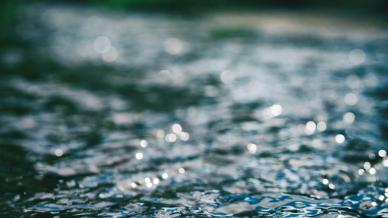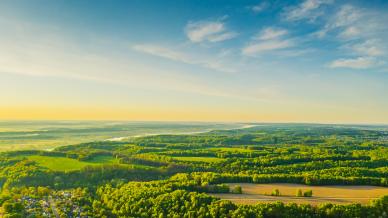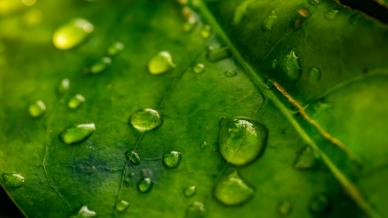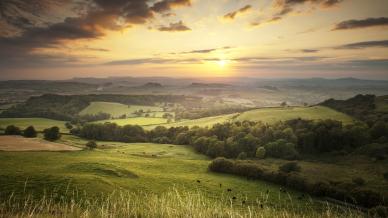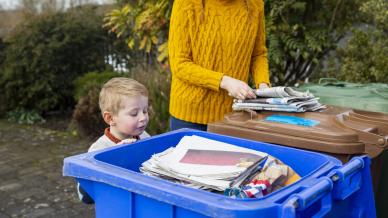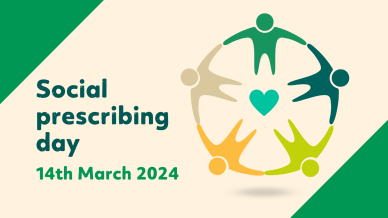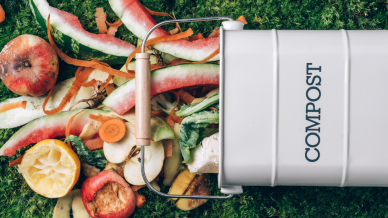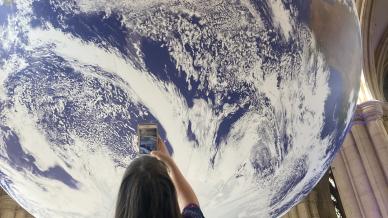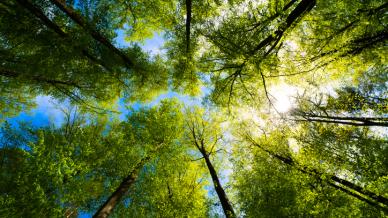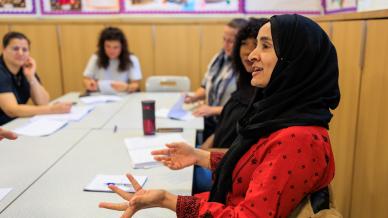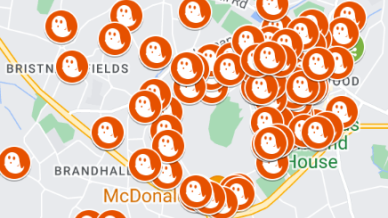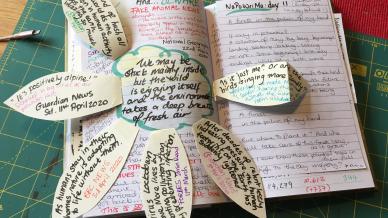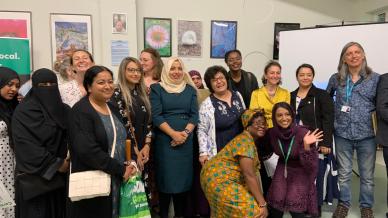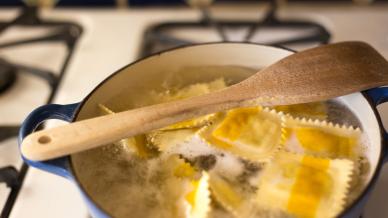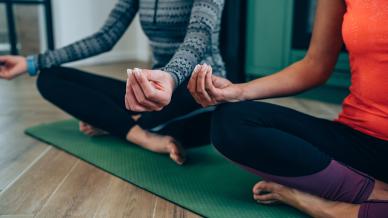Despite the feeling that Britain receives abundant rainfall, water problems persist due to specific seasonal differences; the UK experiences too much rain in winter and too little during long, hot summers. As climate issues increase, the imbalance intensifies, leading to alternating crises of winter floods and summer droughts.
In 2018, Britain faced a record-breaking drought, resulting in one of the driest May-to-July periods ever. Regions like East Anglia experienced toxic algae blooms and threatened the iconic chalk streams. Major rivers hit record lows, and reservoir levels dropped significantly. Just 18 months later, the reverse happened. In 2020, three storms dumped double the average monthly rainfall, causing major rivers to reach their highest levels ever. Flood defences struggled under the intense weight of water.
Climate change means storms are becoming more frequent and intense, leading to extreme rainfall events. Despite the rain, people often use water wastefully. Only half of households in England and Wales have water meters installed. Reconnecting with the value and cost of water is essential to address this issue. In summary, the wrong distribution of rain, climate change, and inefficient water usage contribute to water problems in the UK despite its rainy reputation.
What is World Water Day?
You may not have heard of it, but the United Nations World Water Day, looks at global water sourcing issues. It serves as an international platform to emphasise the importance of freshwater and advocate for its sustainable management. The purpose of the event is to raise awareness about the 2.2 billion people worldwide who lack access to safe water. It aims to address the global water crisis by encouraging action and collaboration.
When is World Water Day 2024?
The day has been held annually on the 22nd March since 1993. This year's theme is Leveraging Water for Peace, highlighting the importance of working together to balance everyone's needs and making water a catalyst for a more peaceful world. Water can be an implement for peace when communities and countries cooperate. However, water can also spark and intensify conflict when access is denied, or usage is unfairly shared.
When water is scarce or polluted, tensions can rise between communities and countries. More than 3 billion people worldwide depend on trans-border water sources. However, 24 out of 153 countries that share rivers, lakes, and aquifers with their neighbours, inform the UN that they have collaborative agreements on its use. Climate change impacts are increasing, and the global population is growing. Therefore, we must [globally] come together over safeguarding and sustaining our water sources. By working together to stabilise everybody's basic rights and needs, water can be a steadying force and a stimulus for sustainable development.

What is the United Nations' role?
As well as bringing global water issues to light in their observance via World Water Day, the UN also recognise the need to “ensure availability and sustainable management of water and sanitation for all” as Sustainable Goal (SDG) 6. (There are 17 SDGs in all). At present, 129 countries are not on track to achieve the aims set by 2030. The UK has signed up to these SDG goals. The UN World Water Development Report is released on the same day and will be focusing on the same topic as the campaign. It will recommend policy direction to decision-makers.
England and World Water Day
The United Kingdom, known for its rainy climate, faces both challenges and opportunities related to water. The UK's climate varies across regions. The west and north receive more rainfall due to prevailing south-westerly winds bringing moist air from the sea. In contrast, the Southeast experiences drier conditions. Even Yorkshire can experience droughts.
There is universal access to water supplies and sanitation in the UK with water being sourced from rivers, groundwater aquifers, reservoirs, and even directly from the sea. The UK treats water for drinking and sanitation to strict standards, passing 99.97% of tests. The water system distributes, over 258,599 miles (416,175 km) of water mains and 244,484 miles (393,460 km) of sewers, 16.6 billion litres of high-quality water daily, to 63.9 million people.
Despite its rainy reputation, nowhere in the UK is immune from drought. The Southeast is classified as "seriously water stressed." Climate change and population growth strain water supplies, especially in London.
How much water is wasted in the UK every year?
Around 23% of the public water supply is lost to leaks annually, but finding and fixing leaks is challenging due to the extensive underground pipe network. By 2040, more frequent, severe droughts are expected due to climate change. As the population grows, responsible water use becomes crucial. Those living in the UK must start using less water now to ensure sustainability.
In the UK, monitoring water levels is essential for understanding and managing water resources. You can check river, sea, groundwater, and rainfall levels in England using the GOV.UK service. It provides data on the last updated height, trend, and state recorded by measuring stations. To access this information, visit the GOV.UK Check for Flooding page.
The UK government publishes monthly reports on various water-related parameters, including rainfall, soil moisture deficit, river flows, groundwater levels, and reservoir levels. These reports provide insights into the overall water situation in England. You can find the latest reports on the Water Situation: National Monthly Reports for England 2022 page.
For real-time river level monitoring, flood alerts, and forecasts across England, Scotland, and Wales, you can explore RiverLevels.UK. This platform lists all river-level monitoring stations and provides valuable information to help you stay safe around water.
Remember, even in a green and pleasant land like the UK, water conservation matters for our future well-being and the health of our environment.
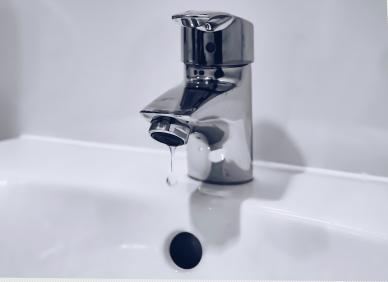
What can I do to help save water?
Authorities encourage water conservation at home. Fixing a dripping tap can save up to a litre of water per day. As summers become hotter and drier, agriculture faces water shortages. UK farmers currently rely on rainfall, but irrigation needs may increase.
In the UK, water conservation is crucial to ensure sustainable water usage and protect our freshwater sources. Here are some practical tips you may wish to consider conserving water at home.
- Switch to Showers: Opt for showers over baths to save water. Keep your shower time to 4 minutes or less. Some water companies even provide free shower timers to help you track your usage.
- Garden Watering: Avoid using sprinklers in your garden. Instead, consider investing in a water butt to collect rainwater or use leftover cooking water to nourish your plants.
- Turn Off the Tap: Running taps waste up to 6 litres of water per minute. Turn off the tap while brushing your teeth or rinse vegetables in a bowl of water to minimise wastage.
- Washing Up: When doing the dishes, fill a washing-up bowl instead of running the tap continuously. Clean the cleanest items first to avoid changing the water often.
- Dishwasher Efficiency: Use a dishwasher instead of handwashing. It saves 6,000 litres of water per year. Skip pre-rinsing dishes to save an added 1,000 litres annually.
- Reuse Cooking Water: Use leftover cooking water or veg rinsing water to hydrate your plants or water the garden.
- Fix Leaks: Regularly check for leaks under sinks or dripping taps. Fixing leaks can significantly reduce your water footprint.
Remember, small everyday actions add up, and collectively, we can make a positive impact on water conservation. Let us protect our precious freshwater sources for both us and the environment!
What is going on at WEA to support World Water Day 2023?
WEA in its Green Curriculum aims to educate, inspire, and empower individuals and communities to act towards a more sustainable future. They look at the sciences behind climate change, how to deal with green issues, permaculture, and the more organic subjects regarding the environment. Under the Humanities and Science category in Nature, Ecology & Permaculture, WEA delivers several courses which will discuss the subject of water source sustainability.
- Green solutions
- Introduction to environmental sustainability
- Permaculture design certificate
- A guide to better greener living
- Introduction to green issues
- Understanding the climate emergency
- Protecting the natural and built environment
- The eco-conscious personal transformation
Click the button below to browse and sign up for our green courses.
